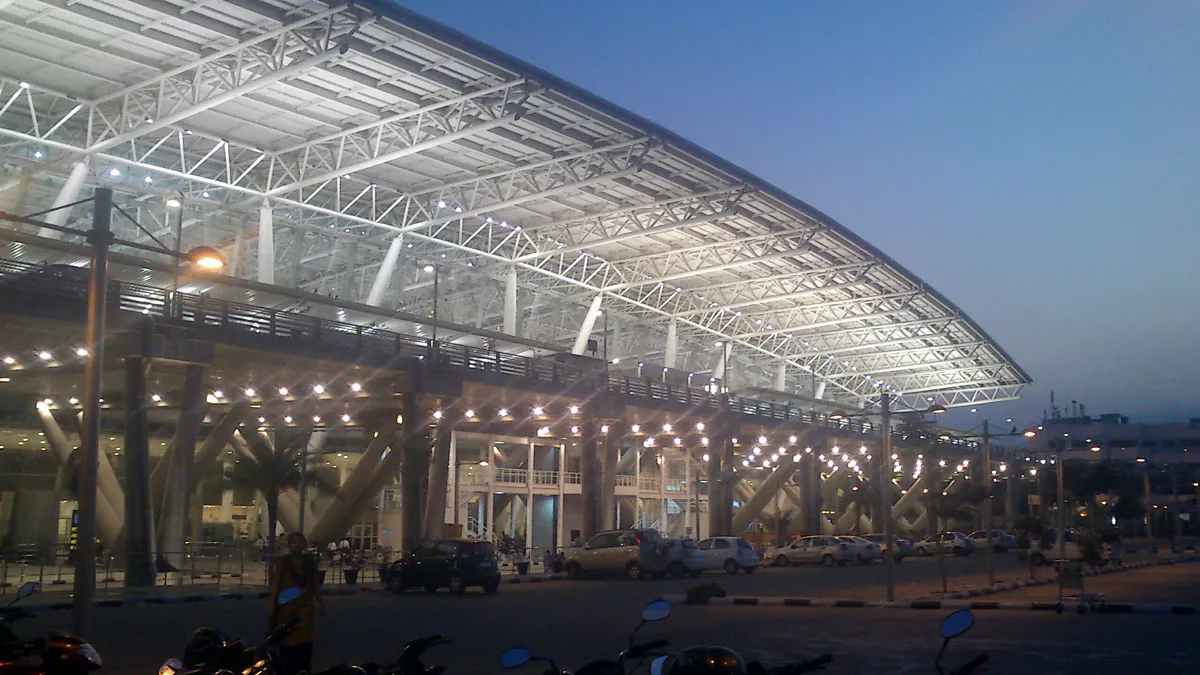'GST for all housing should be at 6 per cent instead of 12 per cent,' says Dr Niranjan Hiranandani, National President, NAREDCO
01 Feb 2018
6 Min Read
Editorial Team
In September 2017, <span style="font-weight: bold;">Niranjan Hiranandani, Chairman & Managing Director, Hiranandani Group,</span> was elected the National President of the National Real Estate Development Council (NAREDCO). Under the aegis of the Ministry of Housing and Urban Affairs, NAREDCO works with the government to achieve its 'Housing for All' objective. Hiranandani shares an industry perspective and elaborates upon the role of the association in conversation with <span style="font-weight: bold;">SHRIYAL SETHUMADHAVAN. </span>
<p></p>
<p> <span style="font-weight: bold;">Tell us about the various initiatives you have been undertaking with NAREDCO.</span><br />
NAREDCO is focusing on the Prime Minister's project of 'Housing for All'. This is the first target we have received from the government and we are certainly responsible along with the government machinery to be able to achieve it. Also, the grant of infrastructure status to the affordable housing segment has given benefits of interests' subvention, which should go to the house purchaser within this segment, and the role out should see that the funds are available in a much larger leisure to those who are doing affordable housing purchase. All these things together in the past 12 months have led to a huge focus in shift of investments to the affordable housing segment. With this, the segment of society that was deprived of houses in the past should get relief, funds should be easily available, and the benefits of taxation would also come along. </p>
<p>Further, NAREDCO is to see that planning norms are modified. So our representations focus on government policies to encourage building of houses and create surplus housing in the country. This is something we have worked on with both the Centre and the states. The states also create policy measures; one is the increase of FSI in cities. We have been saying FSI needs to be increased in the country. </p>
<p> Andhra Pradesh has withdrawn FSI - there is no such thing in the state. The only norms relate to the width of the street, fire fighting and parking. So within these constraints, you can build as much as you can. This has brought prices down. This is a big positive achieved and these are policy measures we have proposed to the Centre and state governments. Mumbai has increased FSI by point five. In these initiatives, including development control rules, NAREDCO has been taking a leadership role. We are also offering our suggestions for the Budget and to the GST Council to reduce the rate for housing. </p>
<p> <span style="font-weight: bold;">At present, what challenges are being faced at the execution or policy level? </span><br />
The key challenge is to ensure enough surplus housing stock is created. If you want to buy a house or rent one, you should have a choice within your budget. That is the challenge we need to meet. However, the solution needs to be holistic. </p>
<p> <span style="font-weight: bold;">How has the country progressed in achieving its vision of Housing for All? </span><br />
A lot of measures and steps have been taken. But one has to understand that last year, the government took some long-term measures that destabilised the economy, such as demonetisation, GST, RERA, the insolvency and liquidation loss. The government is still working towards ensuring stability; once achieved, incremental growth will happen. </p>
<p> <span style="font-weight: bold;">How can NAREDCO support the government in fulfilling its Housing for All vision?</span><br />
We have appreciated all the rules and regulations that have come in for the long term. But in the short term, we have told the government that it created a lot of destabilisation and this needs to be taken care of so that the economy can become stable again. </p>
<p><span style="font-weight: bold;">One challenge the sector has always faced is timely permissions and clearances. How has RERA played a role in curbing this problem?</span><br />
RERA has certainly been positive for new projects; deadlines have been set and everybody is adhering to them. Also, in Maharashtra for instance, Chief Minister Devendra Fadnavis and the municipal commissioners for Mumbai and Thane have been aggressive in improving the ease of doing business. So, lots of things have happened but a lot remains to be done. The move has been proactive as far as the state and local authorities are concerned. I can't say that it has reached the ultimate level we wanted but it has moved.</p>
<p> <span style="font-weight: bold;">How about GST for real estate?</span><br />
NAREDCO is of the view that GST for all housing should be at 6 per cent instead of 12 per cent. This is our representation. While the government has agreed to bring down GST for affordable housing from 12 per cent to 8 per cent, we believe it should be at 6 per cent - not just for affordable housing but all types of housing.</p>
<p> <span style="font-weight: bold;">The government is in the process of finalising its Model Tenancy Act. How is this likely to impact the rental housing scenario?</span><br />
Even the richest country in the world, America, has almost 50 per cent of its population living on rent. But in India, government policies, the income-tax law, local authorities, other laws, even society rules tend to discourage rental housing. For instance, you give your house on rent and have to pay non-occupancy charges. </p>
<p> To share your views, write in at feedback@ConstructionWorld.in</p>




















